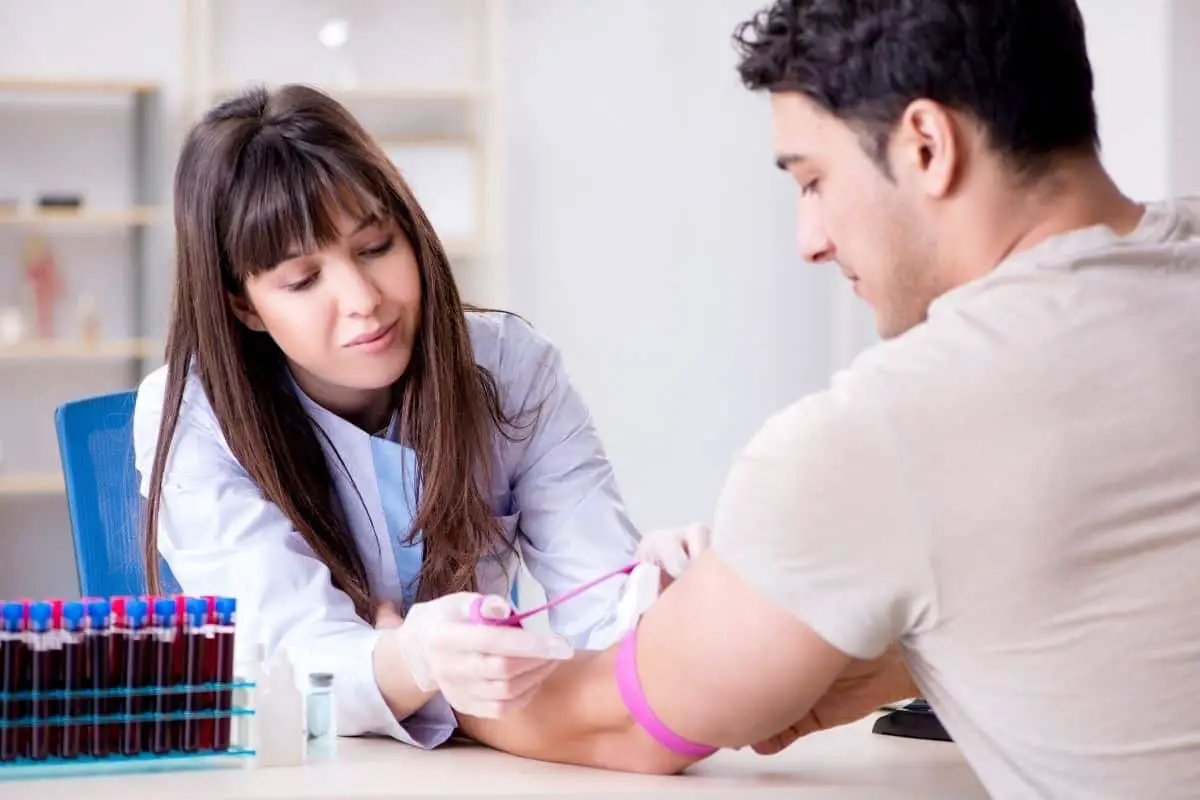You may have an upcoming blood test but wondering whether coffee affects blood test.
Well, it’s important to keep your health in check. To do this, you should do annual health checkups.

When going for an annual checkup, your doctor is likely to request a blood test.
You’re likely to get nervous when informed that some of your blood will be drawn. Besides, your doctor may request you to fast before drawing your blood for a test.
If your doctor has advised you to fast before taking an important blood test, does it mean that you shouldn’t drink coffee while fasting?
If you drink coffee, will it affect your blood test results? If so, how does coffee affect blood test? Read on to learn more.
Why Should You Fast Before Taking A Blood Test?
It’s important to follow your doctor’s instructions for your upcoming blood test. After all, both you and your doctor want to get highly accurate results.
There’re certain tests that require fasting beforehand. Essentially, fasting is necessary before blood work because the minerals, vitamins, carbohydrates, and proteins found in beverages and food can affect the test results.
If your doctor won’t trust the blood tests results, you won’t trust them as well.
There’re several blood tests that require fasting beforehand including:
- Comprehensive metabolic panel- It’s a detailed blood test that assesses various things in the body system like the liver, kidneys, blood sugar, electrolytes, and blood proteins. The test aims to assess how your body is functioning.
- Lipid profiles- Lipid profiles are tests for blood cholesterol. You should fast before taking this test since lipids are a form of fat found in the blood. If you drink coffee or other beverages or eat food before this cholesterol screening, the number of lipids and triglycerides in your blood will be affected. Only drink water before taking this test.
- Glucose- A glucose test is done on the blood to check blood sugar levels. You should fast for about 12 hours prior to taking a glucose test. Avoid consuming caffeine before this test since coffee may affect your blood sugar level by increasing it.
- Basic metabolic panel- It’s a test that focuses on kidney function and diabetes. It requires fasting for more accurate results.
- Gamma-glutamyl transferase test- It’s a test that assesses the amount of an enzyme known as gamma-glutamyl transferase in the blood when testing for the presence of any liver disease. Generally, avoid taking alcohol 24 hours before this test. Also, you may be advised not to eat or drink coffee 8 hours prior to the test.
- Certain nutritional tests- Any blood test seeking to quantify minerals and vitamins require fasting. The kind of nutritional test required will determine the number of hours you’ll need to fast before the tests.
Is It Okay Drink Coffee Before Taking A Blood Test?
In case your doctor tells you to fast prior to taking a blood test, do exactly that and avoid drinking coffee. Although black coffee contains a lower amount of calories than coffee with added milk or creamer, it can also affect the test results. Black coffee has high caffeine content.
Research shows that caffeine can affect your blood pressure and heart rate. Thus, it’ll skew vital signs. Also, coffee contains plant matter that’s soluble and can affect the test results.
Also, caffeine is a diuretic. Thus, drinking coffee may increase the frequency of urination. Consequently, you’ll get dehydrated.
As a result, it may be quite challenging for your doctor to locate your veins when drawing blood. Besides, getting dehydrated will throw off the level of your electrolytes.
If you wouldn’t want to suffer the pain of getting multiple injections in the search of a vein, then consider staying well hydrated before arriving at your doctor’s office.
As such, avoid diuretics like coffee before taking any blood test. By staying sufficiently hydrated, the level of your electrolytes will be more accurate.
How Long Should You Fast Before Your Blood Test?
The length of your fast prior to a blood test will depend on the kind of tests that your doctor needs to take.
In most cases, you’ll need to fast for about 8 to 12 hours before taking your blood test. You can always ask your doctor about the exact number of hours you need to fast.
If you don’t want to spend much of the day without taking a meal, consider scheduling for your blood to be drawn in the morning.
By so doing, you’ll fast while sleeping and visit your doctor after waking up.
Once blood is drawn, you can proceed to take breakfast. That way, you won’t experience hunger pains during the day.
Final Thoughts
As you can see, there’re several blood tests that demand fasting to allow for more accurate results.
If you’re advised by your doctor to fast before your blood test, do so and avoid taking coffee. Since you want to get accurate results, it’s important to observe the directions of your doctor.